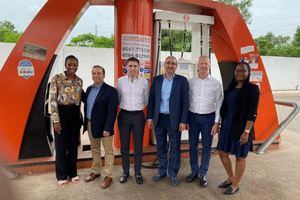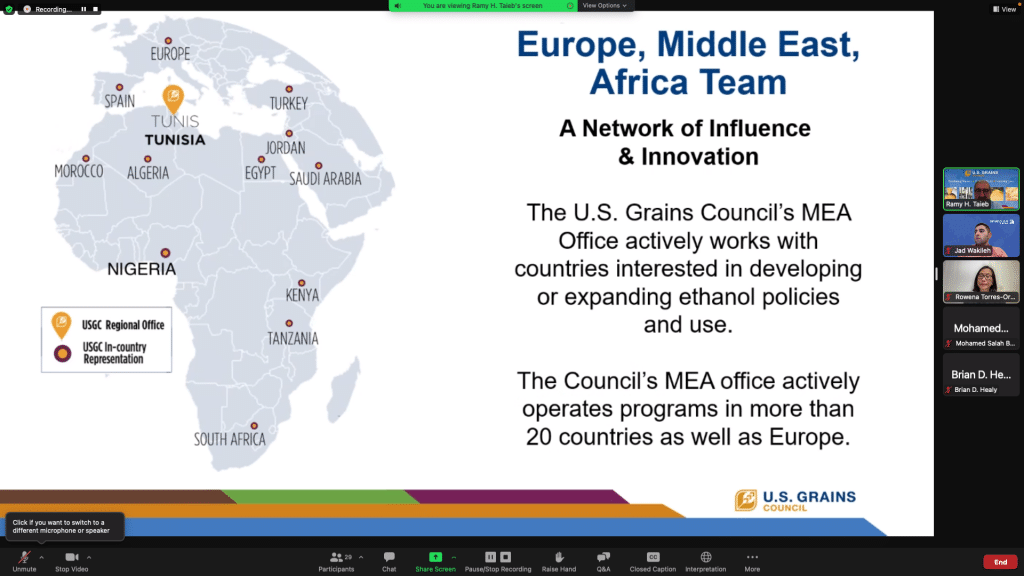In cooperation with the African Refiners and Distributors Association (ARDA), the U.S. Grains Council (USGC) recently held a forum with African industry stakeholders and government officials to discuss finished fuel standardization, the route to domestic production and a case study on specific markets that have adopted an ethanol blending policy.
The virtual workshop on March 31 addressed technical issues like standardization; adopting ethanol use in fuel in terms of specifications; drafting ethanol fuel specifications; as well as best practices for standards monitoring and compliance.
Workshop speakers included Ramy H. Taieb, USGC regional director for the Middle East, Africa and Europe; Anibor O. Kragha, ARDA executive secretary; Brian Healy, USGC director of global ethanol market development; Rowena Torres-Ordonez, USGC ethanol technical consultant and advisor; and Jad Wakileh, USGC ethanol consultant for the Middle East, Africa and Europe region.
“Africa is a region with a growing gasoline market, and E10 is a starting point for new policies throughout the continent,” Taieb said. “This workshop is part of the Council’s technical workshop webinar series to sustain and engage efforts to support the global use of ethanol.”

Following this workshop, the Council organized an ethanol trade mission to Nigeria and Ghana, happening this week. During the mission, the Council is engaging with industry stakeholders and government groups to promote and market ethanol’s octane economics, environmental benefits in reducing greenhouse gas (GHG) and CO2 emissions and support policy development.
The Council’s regional office in Tunis actively operates programs to develop or expand ethanol use in more than 20 countries and Europe. These efforts focus on increasing the value of ethanol in the region, especially as individual countries work to meet commitments to reduce GHG emissions under the Paris Agreement. Ethanol provides a pathway to meeting these commitments by reducing the carbon intensity of transportation fuels.
Following the success of this workshop, the Council plans to organize additional regional workshops to address technical needs and foster policy building.
About The U.S. Grains Council
The U.S. Grains Council develops export markets for U.S. barley, corn, sorghum and related products including distiller’s dried grains with solubles (DDGS) and ethanol. With full-time presence in 28 locations, the Council operates programs in more than 50 countries and the European Union. The Council believes exports are vital to global economic development and to U.S. agriculture’s profitability. Detailed information about the Council and its programs is online at www.grains.org.

